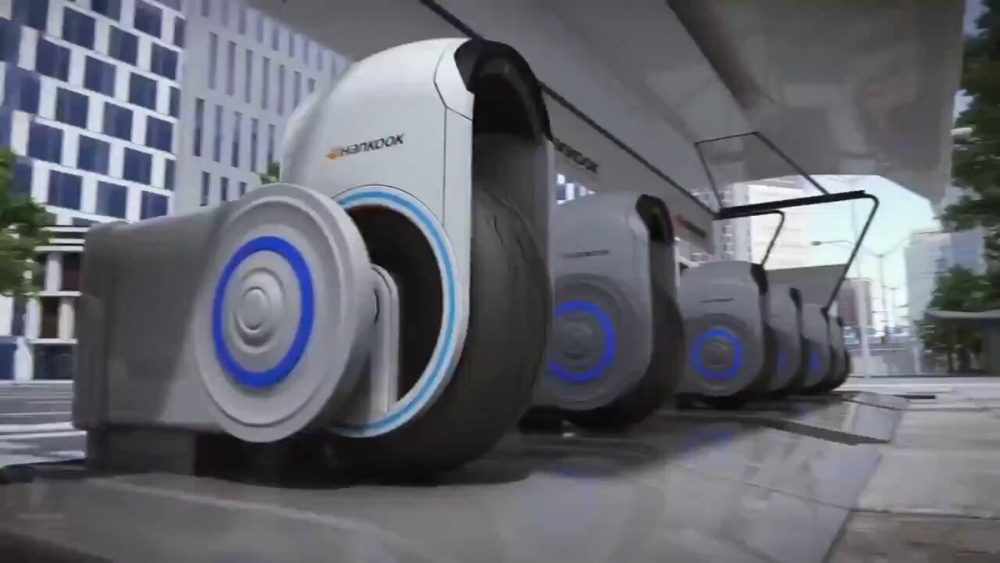The landscape of urban transportation is undergoing a seismic shift, driven by technological advancements and innovative solutions aimed at making city travel more efficient, sustainable, and convenient. The tweet by @FrRonconi, tagged with #FutureTech, #Innovation, #TechForGood, #Tech, and #Technology, encapsulates the essence of this transformation. Let’s delve into the key trends and innovations shaping the future of city travel.
Autonomous Vehicles: The Dawn of Robotaxis
Autonomous vehicles (AVs) are at the forefront of this revolution. Companies like Waymo, Cruise, and Tesla are pioneering the development of self-driving cars, which promise to redefine urban mobility. Waymo, for instance, has been testing its driverless robotaxis on San Francisco freeways, aiming to bring fully autonomous ride-hailing services to the masses. These vehicles leverage advanced AI and machine learning algorithms to navigate complex urban environments, offering a glimpse into a future where human drivers are no longer necessary.
Cruise, another major player in the AV space, plans to integrate its robotaxis into the Uber app by 2025. This collaboration between ride-hailing companies and autonomous vehicle developers is expected to enhance the efficiency and safety of urban transportation. However, the road to widespread adoption is fraught with challenges, including regulatory hurdles and public safety concerns.
Ride-Hailing Innovations: Uber’s Pre-Booking Feature
Uber continues to innovate within the ride-hailing sector, recently introducing a feature that allows users to search for rides in other cities and pre-book them up to 90 days in advance. This feature is particularly beneficial for travelers, offering estimated wait times and costs, and integrating partnerships for loyalty programs and unique experiences. With an expected 271 million passengers flying worldwide between June and August, the demand for convenient and reliable transportation solutions is higher than ever.

Public Transportation: RTA’s Commitment to Innovation
Public transportation authorities are also embracing technological advancements to improve urban mobility. The Roads and Transport Authority (RTA) of Dubai showcased its transition to mass transportation at the InnoTrans 2024 event in Berlin. The RTA highlighted several innovative projects, including the Dubai Metro Blue Line, suspended transport systems, smart metro stations, and emission-free transportation solutions. These initiatives underscore the importance of sustainability and digital transformation in public transport.
Electric Vehicles and Sustainability
The shift towards electric vehicles (EVs) is another critical component of the future of city travel. Companies like Tesla are leading the charge with affordable autonomous EVs designed for ride-hailing networks. Tesla’s upcoming Robotaxi and Cybercab, expected to roll out for under $30,000, aim to make autonomous ride-hailing accessible to a broader audience. The integration of EVs into urban transportation systems not only reduces emissions but also aligns with global sustainability goals.
AI and Automation in Transportation
AI and automation are playing pivotal roles in enhancing the efficiency and safety of urban transportation. Uber’s AI assistant, set to launch in early 2025, will help drivers embrace electric vehicles by tailoring responses to their needs and locations using OpenAI’s GPT-4 technology. This assistant aims to support drivers with EV adoption, providing information on charging locations and purchase recommendations.
Smart Transportation Initiatives
Smart transportation initiatives are being implemented across various cities to improve traffic efficiency and safety. For instance, Salt Lake City has introduced a system where commuter buses communicate with traffic signals to ease congestion. Supported by a $20 million federal grant, this initiative enables vehicles in Utah, Colorado, and Wyoming to share real-time data on road conditions, aiming to reduce accidents and improve safety
The Experience Economy and Micromobility
The experience economy is also influencing urban transportation trends. As people seek organized events and activities, ride-sharing companies like Lyft are expanding their services to cater to this demand. Lyft’s CEO has emphasized the importance of bikeshare programs, particularly docked bikeshare, as a sustainable and efficient mode of urban transportation.
Conclusion
The future of city travel is being shaped by a confluence of technological innovations, sustainability initiatives, and evolving consumer preferences. From autonomous vehicles to smart transportation systems, the landscape of urban mobility is poised for a transformative shift. As these technologies continue to mature and integrate, they promise to make city travel more efficient, sustainable, and convenient for all.
Check out more AI tools.
Elevate Guest Experience with RoomGenie
Textify Analytics – Affordable Insights at the Speed of AI
